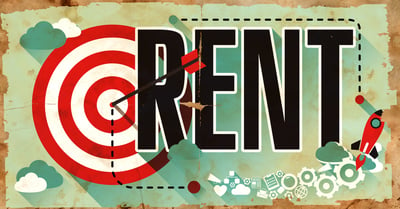Renting Out Your Home or Apartment
Everything you need to know
 Buying investment properties may seem like an excellent option for increasing your income, but it’s crucial not to enter into it unprepared. While it’s true that in many cases it’s easy to make some decent money, it does require effort and additional monetary investment to make it successful.
Buying investment properties may seem like an excellent option for increasing your income, but it’s crucial not to enter into it unprepared. While it’s true that in many cases it’s easy to make some decent money, it does require effort and additional monetary investment to make it successful.
Whether you have a home, condo, or apartment you want to rent, make sure that you look at what it takes to own investment properties from every angle. It’s not as simple as buying an extra place. Here are other essential factors you’ll want to know.
The Expense of Owning Investment Properties
The first thing you’ll want to know about rentals is that there are expenses. The expenses can vary, and not everyone will choose certain expenses, but here are some of the possibilities:
Property management – If the rental isn’t near you, or you don’t have the time to find renters and make sure the property is maintained, etc., then you’ll want a property manager to handle it. Fees vary, but it’s helpful to use a professional with plenty of experience.
Utilities – Does your tenant pay all of the utilities, or do you? Is there a flat fee, or do they pay the exact amount? Investment properties will have the same expenses as a regular home, so make sure you know how those will be covered.
Maintenance – Just like anything, rentals have wear and tear. Investment properties need landscaping, annual appliance and mechanical services, and more. Factor that into your costs.
Miscellaneous – Property taxes and HOA are just two types of expenses you may have on your property. You will want to factor these expenses into your rental rate when you set it.
Mortgage – If you didn’t buy your investment property outright, you’ll have a mortgage. If you are located in a strong rental market, you should be able to see some ROI. In times the market is oversaturated with rentals, you may lose some money.
Rental Property Insurance – This is different from your typical homeowners insurance, in that it specifically protects landlords against liabilities caused by tenants, damage from weather, as well as potential losses from crime. Make sure you shop around for the best quote before selecting an insurance provider.
Professional services - You may choose to have an accountant handle your income, or a lawyer to create lease agreements. These will cost extra.
What happens when you sell investment properties?
You may be safe if you pull out of one rental to purchase another. However, you’ll typically have a capital gains tax when selling your investment properties. Rental income must also be factored into your taxes each year. Ensure your accountant is made aware of any property or holdings you have annually.
What are some potential issues of owning a rental?
Expenses and capital gains are two things to note, but you also have other issues that can arise. For example, what happens if your rental takes longer to rent out than expected? There is no guarantee that every time you have your rental open that it will get snapped up. Be prepared to take a small hit if it sits on the market longer than expected.
Always have a solid lease agreement. Even if you need to spend some money to create one, you’ll be happy that you did. The more clearly you can spell things out, the less likely for random complaints.
The other issue to be aware of is the tenants themselves. There are wonderful tenants out there, but also some incredibly difficult ones. Talk to other investment property owners to fully understand possible scenarios and how to prevent them. You are likely to hear legal fee and damage nightmares. Don’t let that deter you, because you’ll also hear success stories and how people avoided negative situations.
A final thought on rentals
The more you know about investment properties and renting them out, the better. Like anything, preparation and knowledge is the key for a successful experience.